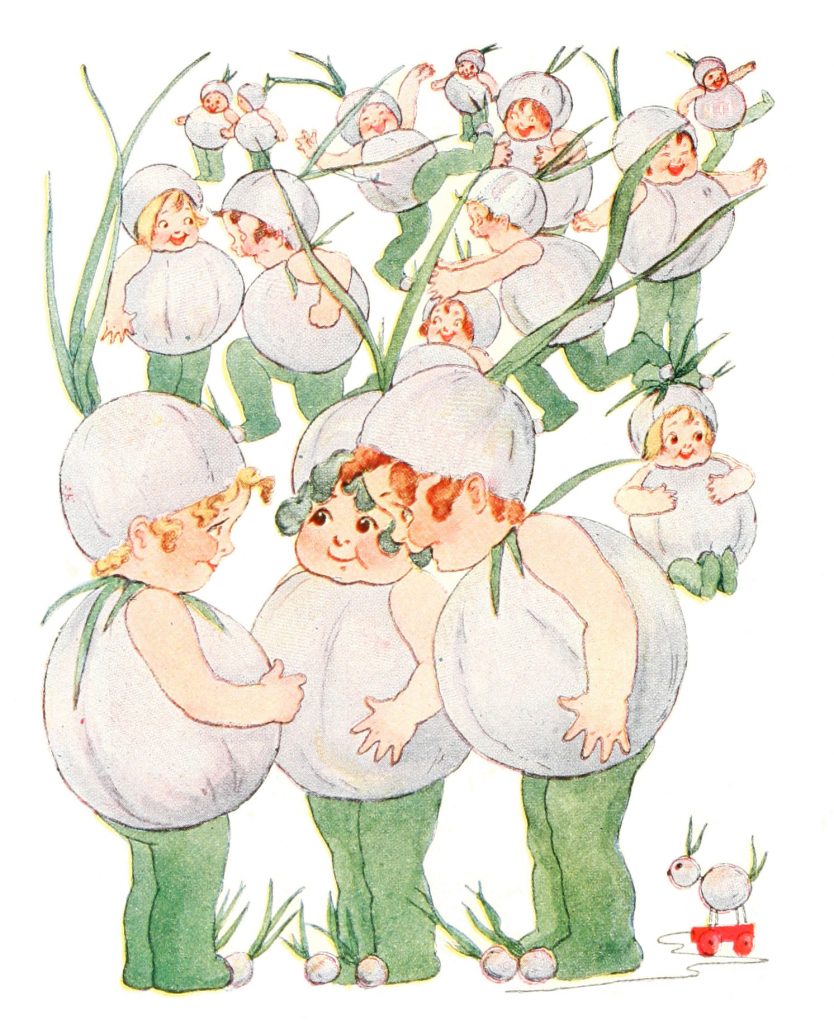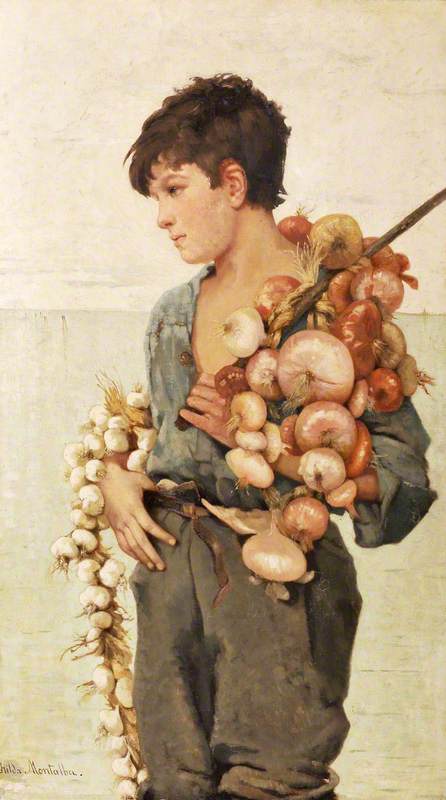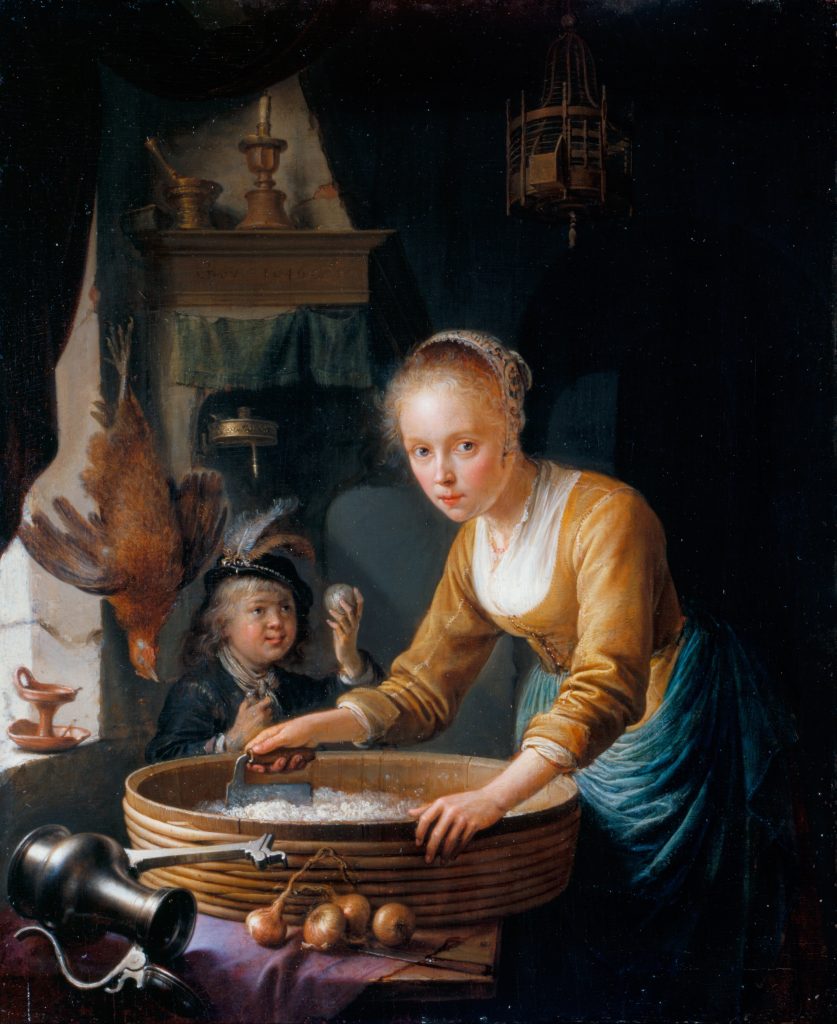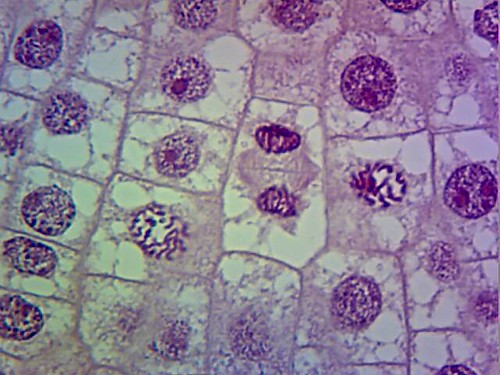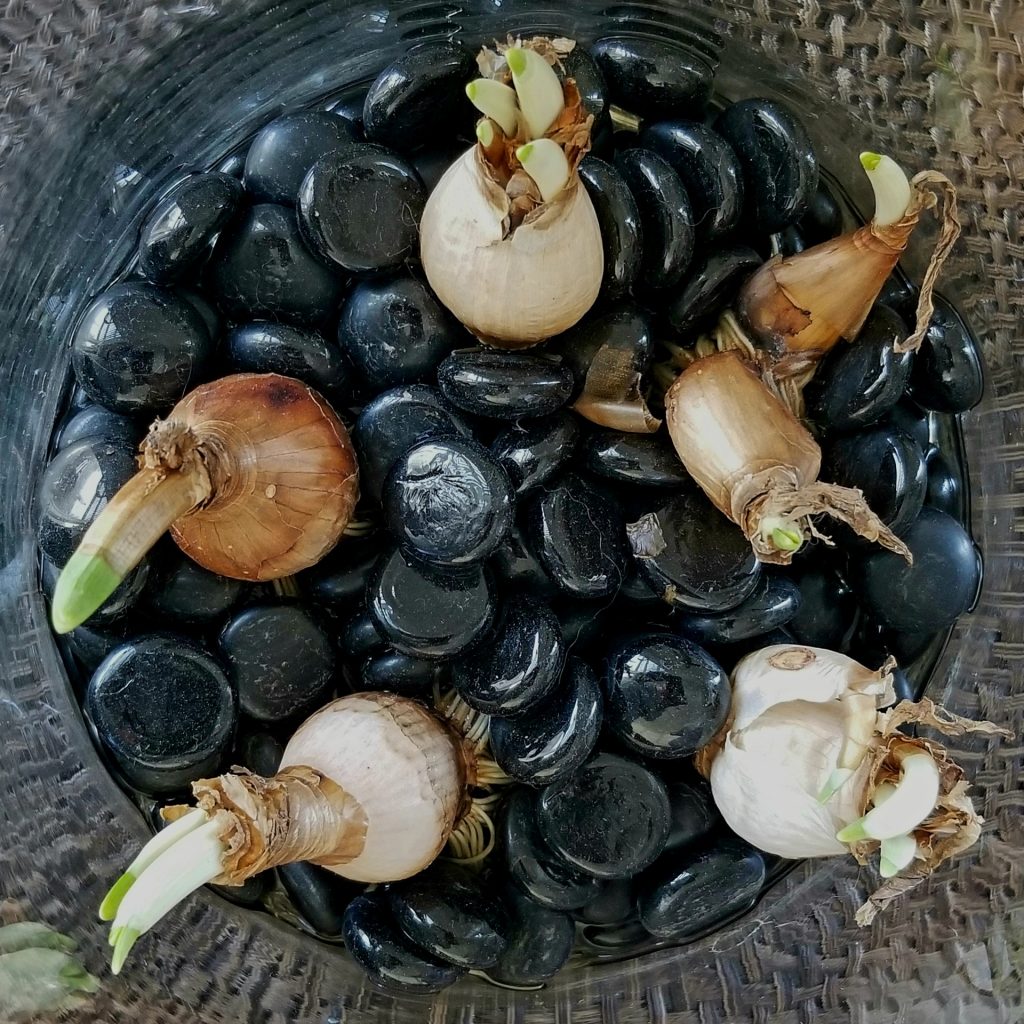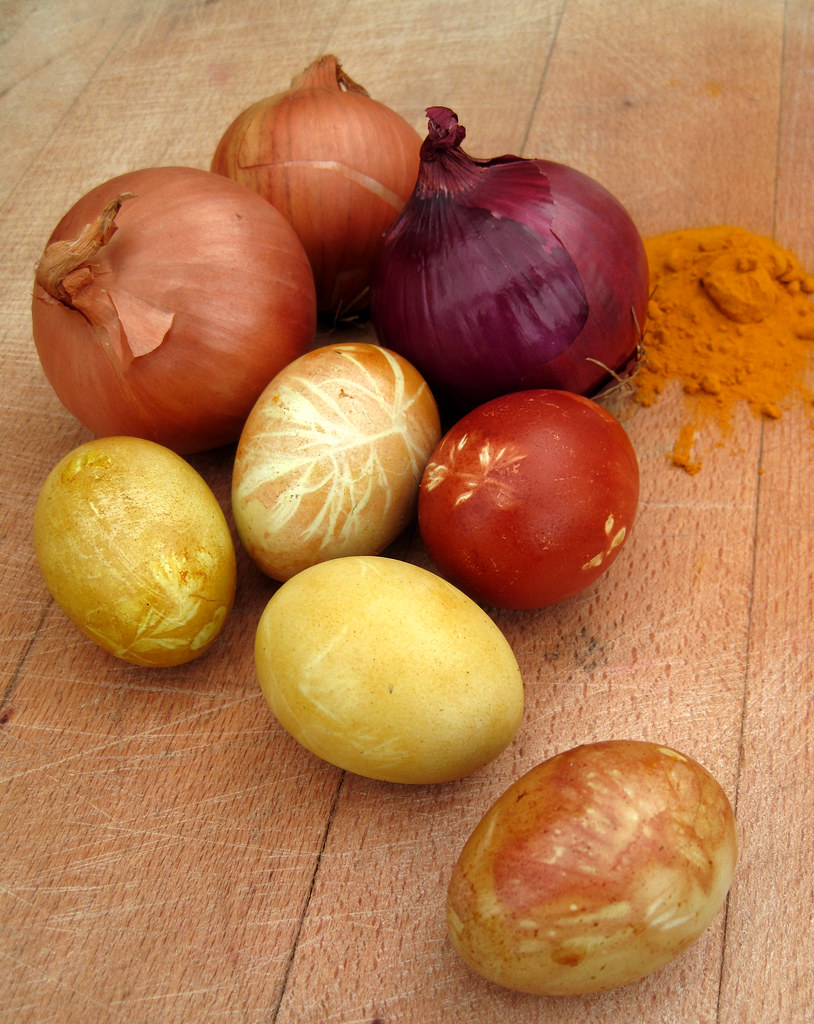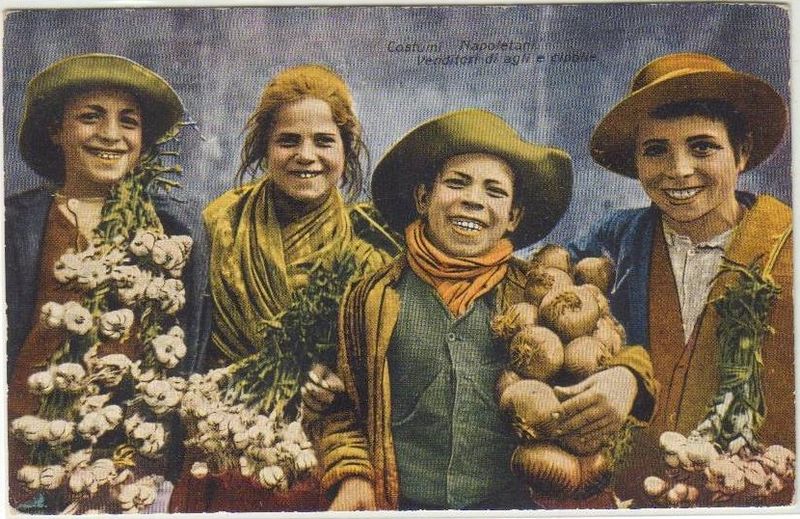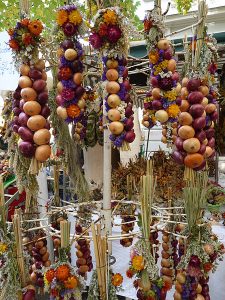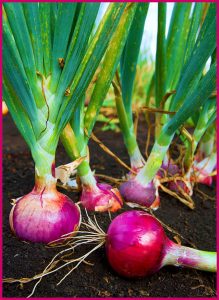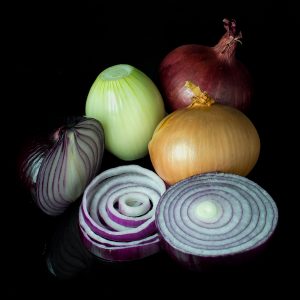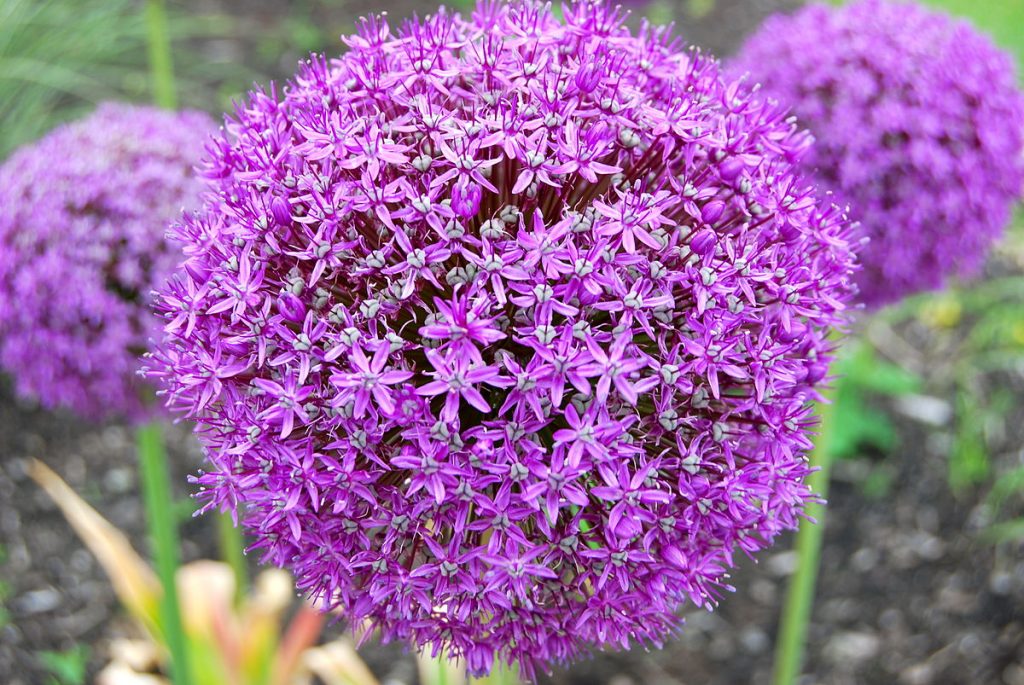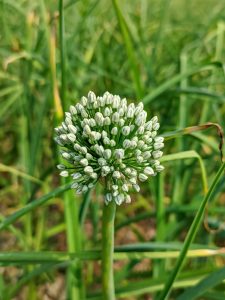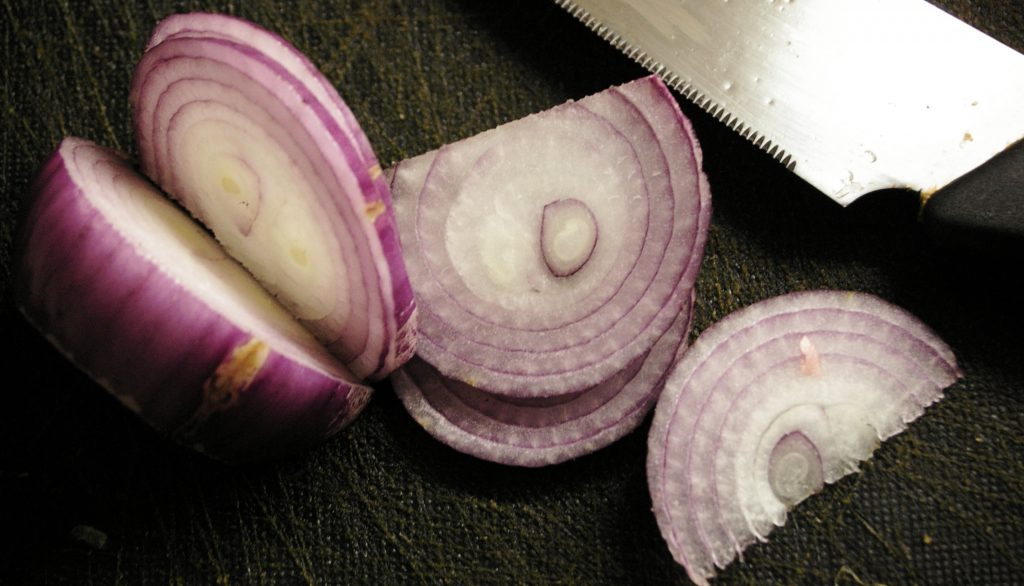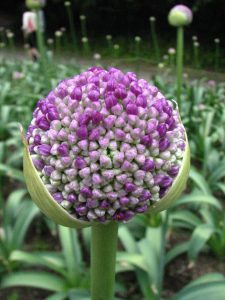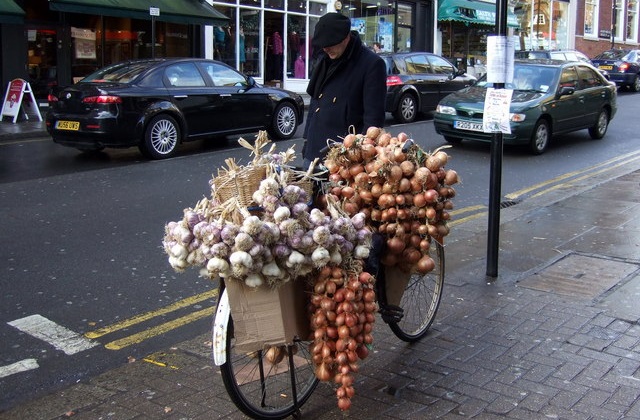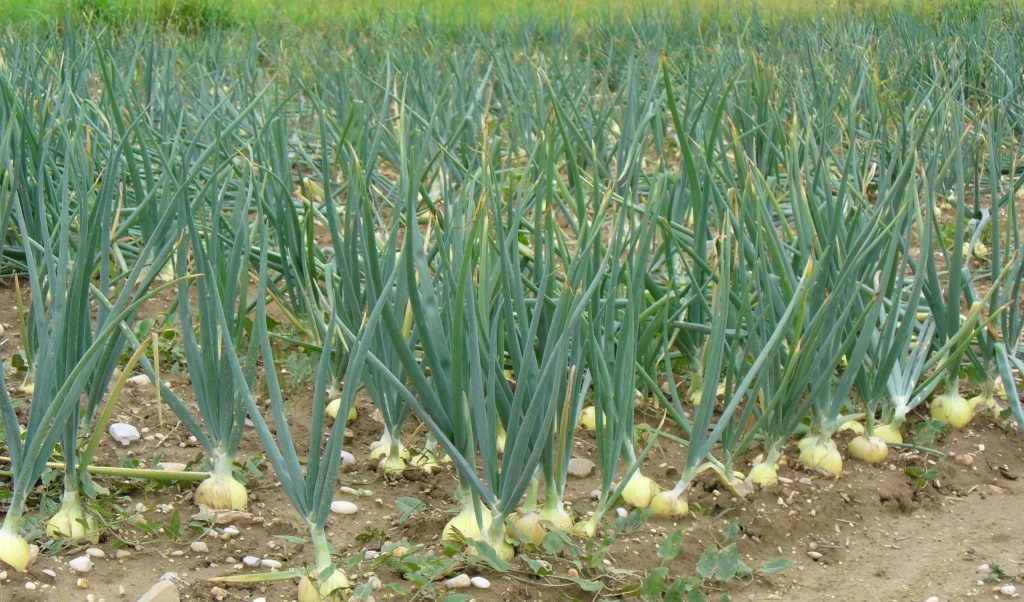Chances are your thoughts went to food: onions as components of soups and stews, casseroles or sandwiches. (If you eat red meat, you might try a toasted English muffin with mustard, a sausage patty, and a slice of onion. It used to be a staple at Bob Evans, and they’ll still make it on request.) You might even think of creamed onions.
For a few of you, The Onion: America’s Finest News Source might come to mind. As far as I know, this is the only (non-cooking) publication named for a vegetable. It’s a print/online parallel to late night comedy shows.
But for most of us, onions are, essentially, food.
In this blog, I want to explore other aspects of onions: the health benefits of eating onions and the symbolism of onions, and miscellaneous helpful uses.
Medicine from the Onion
Medicinal onions: although we don’t usually think of them in this way, onions have numerous health benefits.
Onions Have Many Antioxidants
They contain quercetin, a powerful antioxidant with antiviral and anti-inflammatory properties. They help protect cells from oxidative stress. Onions may reduce the risk of chronic conditions like heart disease and cancer, and support immune system regulation
Onions help Regulate Blood Sugar Levels
Flavonoids in onions help stabilize glucose levels. They may improve insulin sensitivity. Onions help prevent energy crashes and spikes throughout the day. They support better metabolic control.
Onions are Loaded with Nutrients
Onions are a great source of potassium, which aids muscle function and hydration. They contain manganese to support connective tissue and bone health. Onions also help regulate metabolism and energy production, and contribute to maintaining fluid balance in the body.
Anti-Inflammatory Properties
In general, anti-inflammatories are good things. Quercetin works as a natural anti-inflammatory agent, which may ease symptoms of arthritis by reducing joint stiffness and pain. Also, they have the potential to support urinary health by reducing inflammation. Indeed, they aid in fighting any systemic inflammatory condition.
Onions May Help With Cancer
Researchers have linked the organosulfur compounds in onions to anti-cancer effects, associated with reduced risk of colorectal, ovarian, and laryngeal cancers. Being rich in antioxidants helps protect DNA from damage. Overall, onions support detoxification processes in the body.
Onions May Reduce Risks of Alzheimer’s Disease
Quercetin may help protect brain cells from oxidative damage. Researchers have linked the quercetin in onions to a lower risk of neurodegenerative diseases. It also supports long-term memory and cognitive function. Overall, onions are an easy dietary addition to support brain longevity.
Onions Have Antibacterial Properties
They’re rich in allicin, which has antibacterial and antifungal effects. They may help protect the colon and digestive tract from harmful microbes. Onions support overall gut balance and detoxification.
Overall, onions are a natural way to reinforce the body’s defenses. So, lots of reasons to eat onions. Raw onions retain more sulfur compounds and antioxidants before cooking, making them slightly more beneficial than cooked ones. However, both have useful health benefits.
No wonder people have used them in folk medicine as congestion, cough, and cold medicine for centuries. If you have some extra onions lying around, why not whip up an old-fashioned honey and onion cough syrup?
Onion Tears
Raw or cooked, onions typically involve slicing or chopping. Which often involves tears. If onion tears are a problem for you, you might want to watch this short video.
FYI, onion tears are chemically different from emotional tears. Indeed, your body produces a myriad of tears every day. Whether triggered by onions, allergies, intense emotion or just to keep your eyes from drying out, they’re all different. I don’t want to fall into a research rabbit hole, but you might want to explore on your own.
The Onion as a Totem
Paleolith wrote the following for The Totemist.
“Common Onion (Allium cepa) unity, macrocosm and microcosm, the ability to see the multilayeredness of reality, balance between all elements, finding comfort in the earth, emotional release, the symbolism and magic of tears, needing to defend yourself in a memorable way, connection to and protection of soldiers, oaths, treasuring the “simple” joys of life.
“Onions and garlic share much of the same mythology and folklore and totemically share similar attitudes about protection and defense.
“Onions and garlic have long been considered to bestow strength and endurance and were included in the diets of Egyptian slaves and Greek Olympians.
“The word “onion” is derived from the Latin word “unio” which means “unity” or “oneness”, and it is here that Onion’s most mystical teachings are found. The layers of onions have been referenced often in literature as a metaphor for discovering multiple facets of something or for uncovering a truth. Ancient Egyptians, who viewed the circles of the onion as a symbol for eternity, revered, perhaps even worshiped, onions.
“If the ancients discovered the Macrocosm in the onion, then, in a way, we in modern times are given our first glimpses of Microcosm in the same plant. Viewing dyed onion cells under a microscope is one of the first examples young biology students are given of the complexity of life on a microscopic level. In an almost poetic way Onion has helped many of us view yet another layer to life.
“If you choose (or are chosen) to become a student of Onion expect to learn much more than the lessons you first sought out. Onion is as multilayered spiritually as it is physically…. Onion is in equal measures earthy and mystical and students are likely to be asked to examine their lives in a very holistic manner that brings the two states into a harmonious union.”
Cromniomancy (Onion Divination)
The earliest written mention occurs in Robert Burton’s The Anatomy of Melancholy. He referred to cromniomancies as a custom of laying onions on an altar on Christmas Eve in order to divine when someone will marry.
Cromniomancy usually involves interpreting the sprouting behavior of onions, after some kind of ritual to state the topic of the divination. This often involves inscribing the onions, dedicating them on an altar or something similar. But people can also perform cromniomancy in idiosyncratic ways not involving sprouting.
Historically, people across Europe, Africa, and northern Asia have performed cromniomancy. The sphere within a sphere of the onion made it a much-revered symbol of spirituality and eternity, to the extent that the ancient Egyptians took their sacred oaths with their right hand on an onion. There are many forms of cromniomancy, from divining the weather by the thickness of the skin, to gaining inside information.
Miscellaneous Onion Uses
Cleaning and Polishing
Have rusty knives lying around that you are hesitant to use? Plunge your knife into a large raw onion and this will immediately remove rust.
Dirty, grimy, grill? No problem! Chop an onion in half, and then use a fork to hold half of the onion to scrub the grill.
In fact, onions are effective for polishing most metals. Crush a raw onion and combine it with equal part water. With a cloth, dab it on the metal surface. Rub until everything is shiny and clean.
Healing and Soothing Skin
The magical onion enzymes are also effective for “removing acne.” Mix crushed onion slices with water and apply to acne. The components of the onion are harsh on zits and effectively remove them.
The calming properties of onions can help in treating minor burns. Rub an onion on top of a burn to soothe the pain.
Fix Obnoxious Odors
Is the smell of new paint keeping you up all night? Rather than purchasing expensive room freshener, place several freshly cut slices of onion in a dish with a bit of water. Leave the bowl in the newly painted room overnight, it will combat the unpleasant, and sometimes unhealthy, odors of paints and varnishes.
Overcook your rice and want to get rid of that burnt smell that seeps into every corner of your house? Place half an onion next to the stove — it’ll absorb the smell.
Around the House
Onion skins make great dyes! It’s as simple as wrapping eggs in onion skins, tying them up in a towel to secure them, and boiling as usual. They’ll come out with a beautiful, orange tint. Red onions will create a purplish-pink dye.
Bugs hate the pungent-smelling compound allicin found in onions — making it a perfect choice for natural and organic insect repellent. And making it is simple: blend two onions and a clove of garlic with a quart of water until smooth. Use cheesecloth to filter and pour the mixture into a spray bottle. There you have it — a nature-friendly insect repellent that will keep the pesky bugs away without harming your plants.
Bottom Line: Whether food or food for thought, magical or practical, onions have something for everyone!

